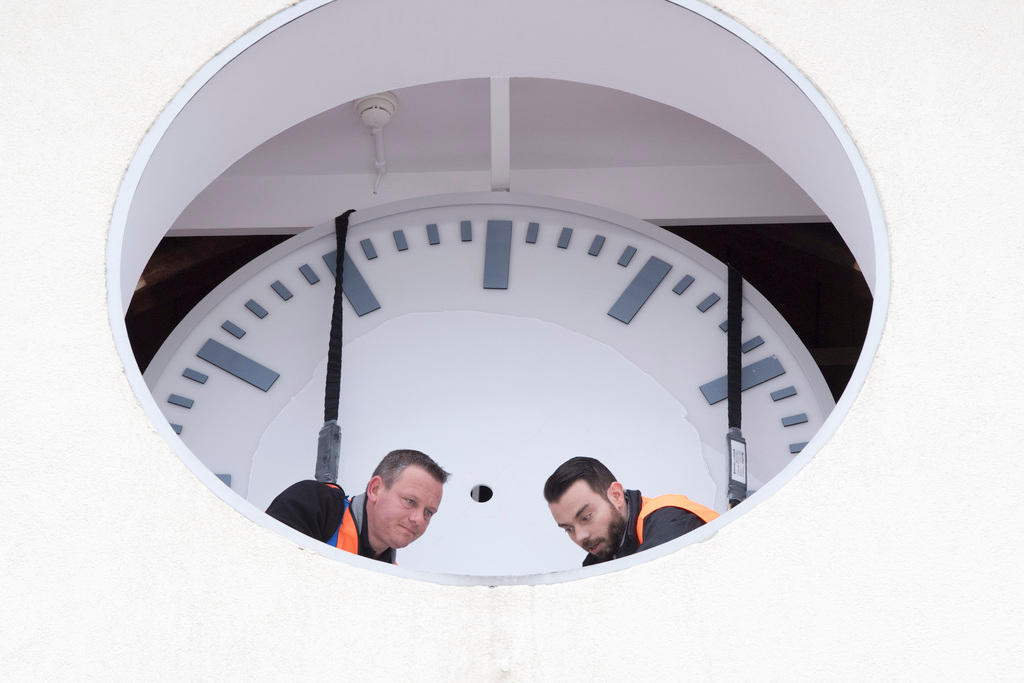
Swiss atomic clock helps keep the world on time

This week, the Swiss Federal Institute of Metrology (METAS), announced that the alpine nation is for the first time contributing to the keeping of Coordinated Universal Time (UTC) with one of the world’s most accurate atomic clocks.
UTC is the time standard by which the world’s clocks and time zones are set and does not adjust for daylight savings. It is set by the International Bureau of Weights and Measures (BIPMExternal link) based on data from some 350 atomic clocks in more than 60 laboratories around the world.
Keeping UTC precisely accurate and coordinated also requires data from about a dozen hyper-accurate atomic clocks called primary frequency standardsExternal link [PDF]. Now, the BIPM has recognised the FoCS (Fontaine Continue Suisse) atomic clock, located in the canton of Bern and developed by METAS and the University of Neuchatel with the support of the Swiss National Science Foundation, as a new primary frequency standard.
FoCS, one of the most accurate atomic clocks in the world, helps keep extremely precise time based on the frequency of the oscillation of excited caesium electronsExternal link between energy states. According to METAS, it is so accurate that it would take 30 million yearsExternal link for two clocks of its kind to display a difference of one second.
METAS notes that while accurate universal timekeeping is essential for maintaining other international measurement systems, such as the metreExternal link – defined as the length travelled by light in a vacuum over the course of 1/299 792 458 of a second – measuring time precisely is also indispensable for the proper functioning of systems like telecommunications and geolocation services.

More
Who should decide on turning the clocks back?

In compliance with the JTI standards
More: SWI swissinfo.ch certified by the Journalism Trust Initiative





























You can find an overview of ongoing debates with our journalists here . Please join us!
If you want to start a conversation about a topic raised in this article or want to report factual errors, email us at english@swissinfo.ch.